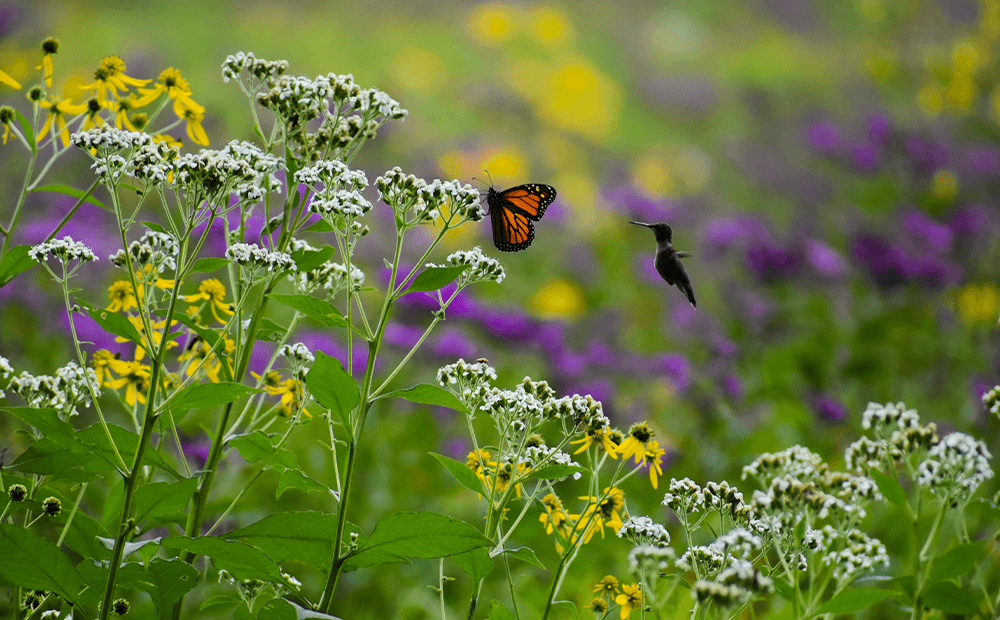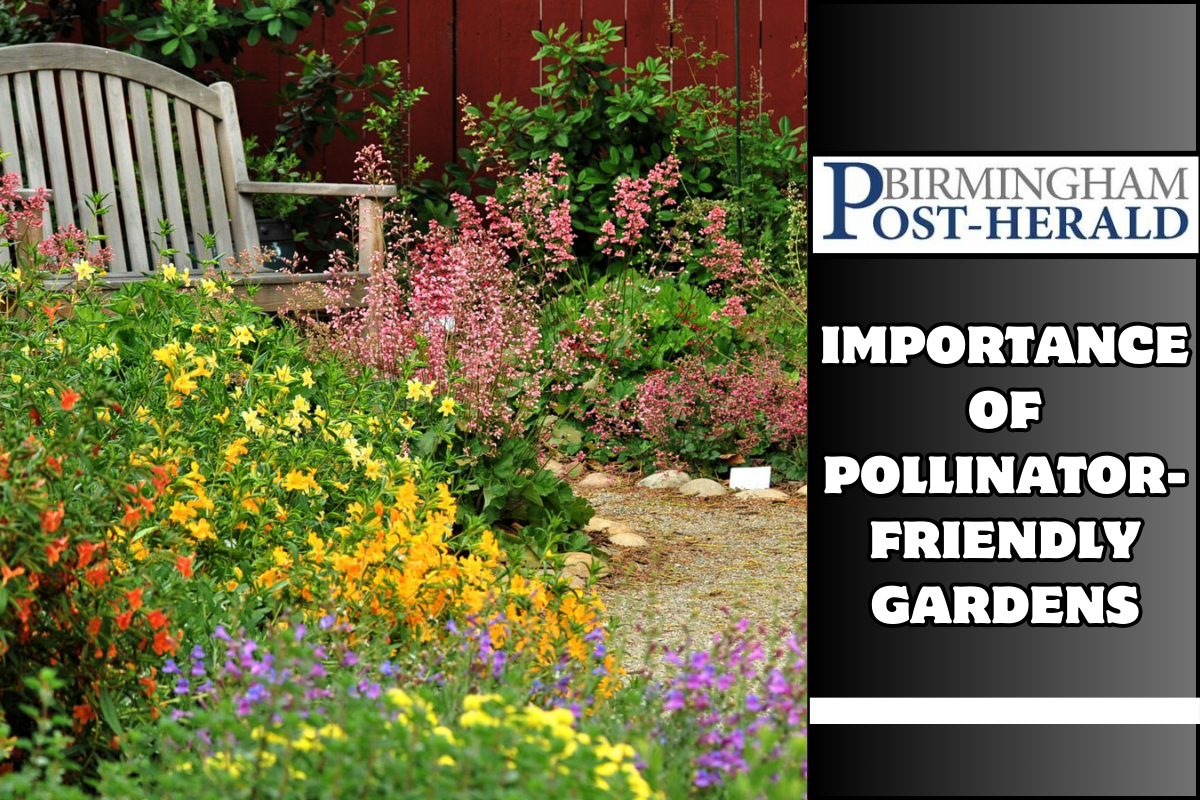Importance of Pollinator-Friendly Gardens:-Pollinators are very important to our environment because they help flowering plants reproduce and increase biodiversity. Pollinator-friendly gardens are made to draw and care for bees, butterflies, hummingbirds, and other helpful insects that spread pollen.
Importance of Pollinator-Friendly Gardens
This piece will talk about why pollinator-friendly gardens are important and how they help protect the environment and promote sustainable gardening.
1. Essential Role of Pollinators
- Many types of plants, like fruits, veggies, flowers, and trees, can’t reproduce without pollinators.
- They help flowers reproduce by moving pollen from male to female parts of the flower.
- This makes seeds, fruits, and new plants. Many plants would not be able to reproduce without pollinators.
- This would cause imbalances in the environment and less variety in the plants that grow there.
2. Food Production and Agriculture
- Pollinators are very important to farming and growing food. Pollination is important for many crops, like fruits, veggies, nuts, and oilseeds, so they can set fruit and produce a lot.
- Crops that rely on pollinators are very important for food security and the economy around the world.
- This means that pollinators are very important for sustainable agriculture and food production.
3. Biodiversity and Ecosystem Health
- Pollinator-friendly gardening help ecosystem health and biodiversity by giving pollinators a place to live, eat, and nest.
- Gardeners can help protect native pollinator species by making flowering and diverse landscapes that draw a wide range of pollinating insects.
4. Garden Beauty and Aesthetics
- Garden designs that are good for pollinators not only help wildlife, but they also make gardens look better.
- Planting a range of flowering plants, including native species, gives gardens color, texture, and seasonal interest.
- This makes landscapes that look good, draw pollinators, and make gardeners happy.
5. Support for Endangered Pollinators
- Pollinator species like some bees and butterflies are in danger because their homes are being destroyed, they are being exposed to pesticides, the temperature is changing, and they are getting sick.
- Pollinator-friendly gardening give food, shelter, and a safe space free of harmful chemicals to pollinators that are in danger of going extinct.

Also Read:-Impact of Social Media on Celebrity Culture
6. Sustainable Gardening Practices
- Pollinator-friendly gardens encourage eco-friendly planting by cutting down on the use of chemicals and pesticides that are bad for pollinators.
- Gardeners can keep their fields healthy and full of life by using organic gardening methods, natural ways to get rid of pests, and not using pesticides that could hurt pollinating insects.
7. Educational Opportunities
- Pollinator-friendly gardens are great places for kids and adults to learn about how important native plants, insects, and protecting the environment are.
- Educational programs, workshops, and interpretive signs in gardens can make people more aware of the need to help pollinator numbers and motivate them to take action.
8. Increased Crop Yields and Quality
- For homegrown fruits and veggies, gardens with lots of pollinators can get higher crop yields and better fruit quality.
- Pollinators make sure that flowers are pollinated completely and effectively, which leads to better fruit set, bigger fruits, and more nutritious food when it is gathered.
9. Conservation of Native Plants and Habitats
- Planting native flowering plants in parks that are good for pollinators helps protect native plant species and their habitats.
- Native plants are very good at adapting to the weather, earth, and animals that live nearby.
- This makes them useful for pollinators and other animals.
10. Climate Resilience and Adaptation
- Pollinator-friendly gardening can help people adapt to and survive climate change by building strong networks between plants and pollinators.
- Ecosystems that are diverse and strong, with places that are good for pollinators, are better able to handle the effects of climate change, like extreme weather, habitat loss, and alien species.
Conclusion
Supporting pollinator numbers, increasing biodiversity, encouraging sustainable gardening practices, and helping to protect the environment all depend on pollinator-friendly gardens. Gardeners can make environments that are good for pollinators by planting a variety of native flowering plants, staying away from chemicals that are bad for pollinators, giving them places to nest and water, and spreading the word about how important pollinators are. By making gardens that are healthy and full of life for pollinators, we can help protect them and make sure that the environment will continue to thrive for future generations.
